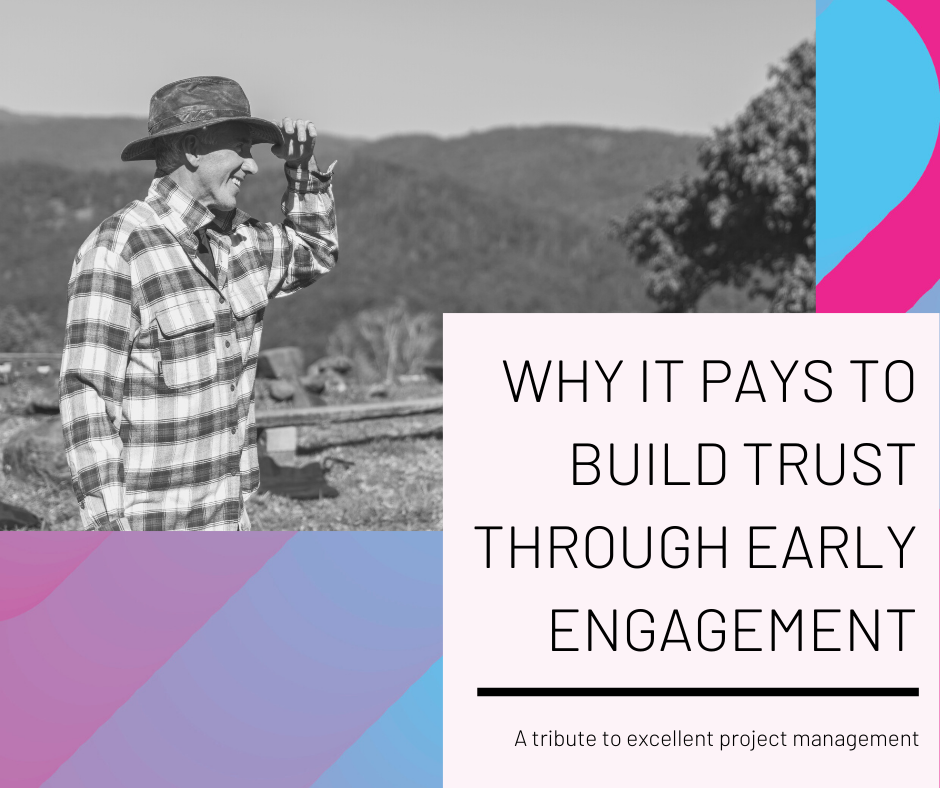Why it pays to build trust through early engagement
A project manager said to us the other day “all that early engagement is really paying off now” and we wanted to reach through the phone and kiss him, and maybe erect a little statue somewhere. Instead we urged him to tell all his project manager friends.
It’s shiny little moments like these that remind us that what we do as engagement practitioners can make a difference to the outcome of a project. But just as we’d love to take the credit for this one, it’s actually the project manager who deserves the engagement accolades. He started engaging with the project’s neighbours almost 12 months before a contractor was appointed and long before he brought Spectrum in to consult.
He met with the high-risk stakeholders for hours, documented their concerns, investigated alternative options, proposed solutions and knew each key stakeholder by name. His attentiveness to their needs is evident in how he let the tender, preferencing contractors whose methodology was less intrusive on the project’s neighbours. As we walked the appointed contractor through the site, he pointed out stakeholder issues and concerns, iterating the importance of maintaining communication on this or that, of not blocking access to this track, of monitoring speed limits on local roads and being conscious of stakeholder privacy.
Now, there are probably many project managers out there who do this as par for the course, but it’s prompted by a risk management approach, where it’s in their interest to maintain stakeholder relations due to high project visibility, media, political interest, or a history of hostility and tension. But this project was low risk in the interest stakes. It’s geographically isolated, with few immediate neighbours. It’s within an existing footprint with little to no environmental impacts, and no heritage impacts. It’s government funded but minor in a dollars sense and there will be little to see once completed. So why did the project manager go to all that effort to engage early?
Because as he said “it’s paying off now”. When we issued the first construction notification, there were no surprises for our stakeholders. There was nothing in the notification that would raise a red flag with the neighbours, nothing we hadn’t discussed already. It was really more a formality to advise that construction was about to start. They’d been expecting it. It’s what we at Spectrum call the “no surprises approach” to engagement and communication.
Will it be all smooth sailing now as construction gets under way? Probably not, because things always come up that we can’t anticipate, but we have established a precedence of telling our stakeholders when things on the project change. We’ve established something even more important than great comms – trust. And that’s pretty special.

